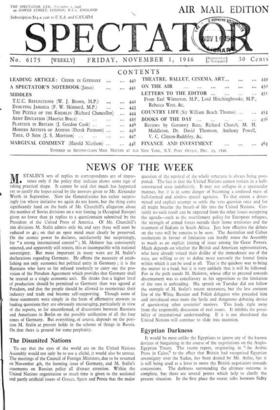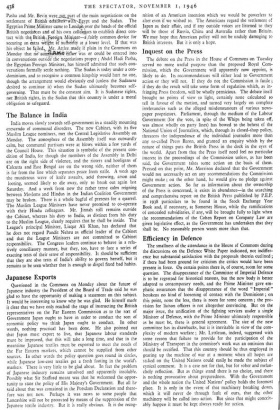Egyptian Darkness
It would be most unlike the Egyptians to ignore any of the known devices of bargaining in the course of the negotiations on the Anglo- Egyptian Treaty. The recent report, originating in " the Arabic Press in Cairo," to the effect that Britain had recognised Egyptian sovereignty over the Sudan, has been denied by Mr. Attlee, but it is still being used as a lever to move the British negotiators towards concessions. The darkness surrounding the ultimate outcome is complete, but there are several points which help to clarify the present situation. In the first place the recent talks between Sidky Pasha and Mr. Bevin were_ns&part of the main negotiations on the
settlement of Britisfi. teliftibirstwi gypt and the Sudan. The Egyptian Prime:Mihister came to Lona over the heads of the official
British negotiators and of his own coll es to establish direct con- tact with the‘ British...Xs:ft • rk r— ,fairly common device for
securing an extra weight f -author ty at a lower level. If that was his object he failedffi r. Attlee.made if plain in the Commons on Monday that rid- • .itsher•Was or could be entered into in conversations outsi e-tlie negotiations proper ; Abdel Hadi Pasha, the Egyptian Foreign Minister, has himself admitted that such con- versations formally settle nothing. The Sudan is today under a con- dominium, and to recognise a common kingship would hurt no one, though the arrangement would obviously end (unless the Sudanese desired to continue it) when the Sudan ultimately becomes self- governing. That must he the constant aim. It is Sudanese rights, not British rights, in the Sudan that this country is under a moral obligation to safeguard.



































 Previous page
Previous page